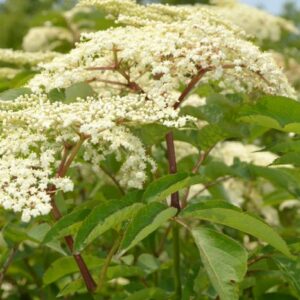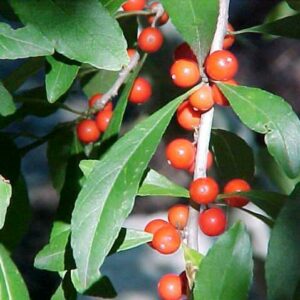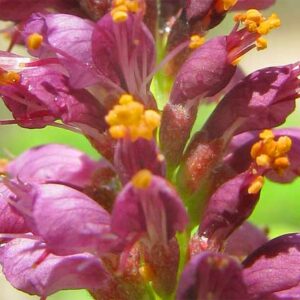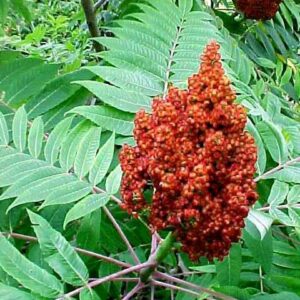Description
Culture
This native plant prefers the soil of its natural forest floor habitat – a moist clay or sand enriched with organic matter. It will fruit most abundantly in full sun but may be grown in light shade. The plant needs minimal care once its roots are established. Since Missouri is at the northern edge of beautyberry’s range, the foliage will be killed back to the ground in most winters. This will not affect the flowering as the plant blooms on new growth. In warmer areas, this shrub may be pruned back to about 2′ less than the desired size. Propagate by cuttings or from seed.
Noteworthy Characteristics
Beautyberry is a loose open shrub valued for its spectacular fruits. The relatively insignificant flowers develop into prolific bright violet to magenta berry-like drupes which encircle the stem. These fruits remain attractive for a long time although they are generally gone before severe winter weather.
General Use
The size and loose open habit of beautyberry makes it best for the back of a shrub border where it may be massed in large landscapes or where it may be naturalized. Beautyberry plants are said to bear more fruit if several are planted together.
Problems
Beautyberry is relatively disease and pest free.
Additional information
| Common Name | beautyberry |
|---|---|
| Scientific Name | Callicarpa americana |
| Native Range | Southeastern United States |
| Zone | 6 to 10 |
| Height | 3.00 to 6.00 feet |
| Spread | 3.00 to 6.00 feet |
| Bloom Time | June to August |
| Bloom Description | Lavender, pink |
| Sun | Full sun to part shade |
| Water | Medium |
| Maintenance | Medium |
| Flower | Insignificant |
| Attracts | Birds |
| Fruit | Showy |
| Tolerate | Clay Soil |
| Other | Winter Interest |






